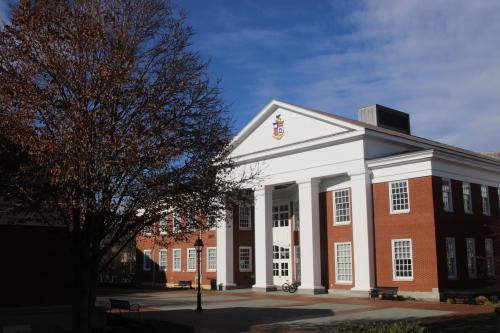People who feel financially secure vote, people who aren’t secure don’t, according to a Pew Research Center report released this morning. And because financially insecure Americans disproportionately identify with the Democratic Party, Democrats face a structural disadvantage, especially in mid-term elections. In 2014, fully 94% of the most financially secure Americans were registered to vote, compared to only 54% of the least secure; 63% of the most secure were likely voters, versus only 20% of the least secure.
Not surprisingly, financial security is correlated with political knowledge and activism. The most secure Americans are more than twice as likely to know basic facts about the political system, and three times as likely to have contacted an elected official during the past two years.
For decades, political scientists have debated whether non-voters’ political attitudes differ significantly from those of voters. The new Pew report returns a divided verdict on this question. On the one hand, it finds some important divergences between the two groups. Financially insecure Americans are far more likely to believe that government should do more for the needy, even if it means taking on more debt, and they are far less likely to believe that poor people have an easy life receiving government benefits without doing anything in return. A majority of financially secure Americans agree that most corporations make a fair and reasonable amount of profit, a proposition the financially insecure reject by a margin of two to one.
On the other hand, Pew identifies a surprisingly number of questions for which individuals’ level of financial security does not appear to affect their beliefs. Regardless of financial status, majorities of Americans believe that good diplomacy is the best way to ensure peace, that homosexuals should be accepted by society, and that stricter environmental regulations are worth the cost. By a margin of 59 to 36, Americans agree that immigrants today strengthen our country and refuse to regard them as a burden. Despite the fact that financially insecure Americans are more likely to be in direct competition with immigrants for jobs and opportunities, a majority of even the least secure Americans takes an affirmative view of immigrants’ effect on the country.
Notably, despite the events of recent weeks, 64% of Americans take the position that “Blacks who can’t get ahead in this country are mostly responsible for their own condition”; only 28% disagree. Financial status seems to have no effect whatever on individuals’ beliefs about this issue.
Nor is it strongly correlated with attitudes toward government. 40% of all Americans think that government does a better job than people give it credit for compared to 56% who believe that it is almost always wasteful and inefficient. Among the least financially secure Americans who would seem to have the most to gain from effective public programs, only 48% adopt the more affirmative stance, while 49% focus on waste and inefficiency. Government’s poor reputation is one of the many obstacles impeding political mobilization along economic lines.
The Pew report looks at key demographic groups, with some surprising results. Although men and women are equally likely to enjoy the highest level of financial security, women constitute fully 62% of those who report the greatest insecurity. Non-whites are more likely than whites to report high levels of insecurity. Marriage and education are closely linked with financial security, disability with insecurity.
Young adults are the least secure group, while individuals 65 and older report the highest level. In fact, these older Americans constitute only 7 percent of the group with the lowest level of financial security. As a country, it appears, we are doing a better job providing security to the elderly than opportunity for the young.
One can only hope that elected officials will focus on this disparity more than they have in recent years. But as the report shows, the people who most need a hand up are those least likely to vote and to make their views known to elected officials. Unless average Americans feel secure enough to afford generosity, leaders who focus on the problems of those at the bottom are likely to reap meager electoral rewards.



Commentary
The Financially Insecure Are Less Likely to Vote – And Why that Matters
January 8, 2015